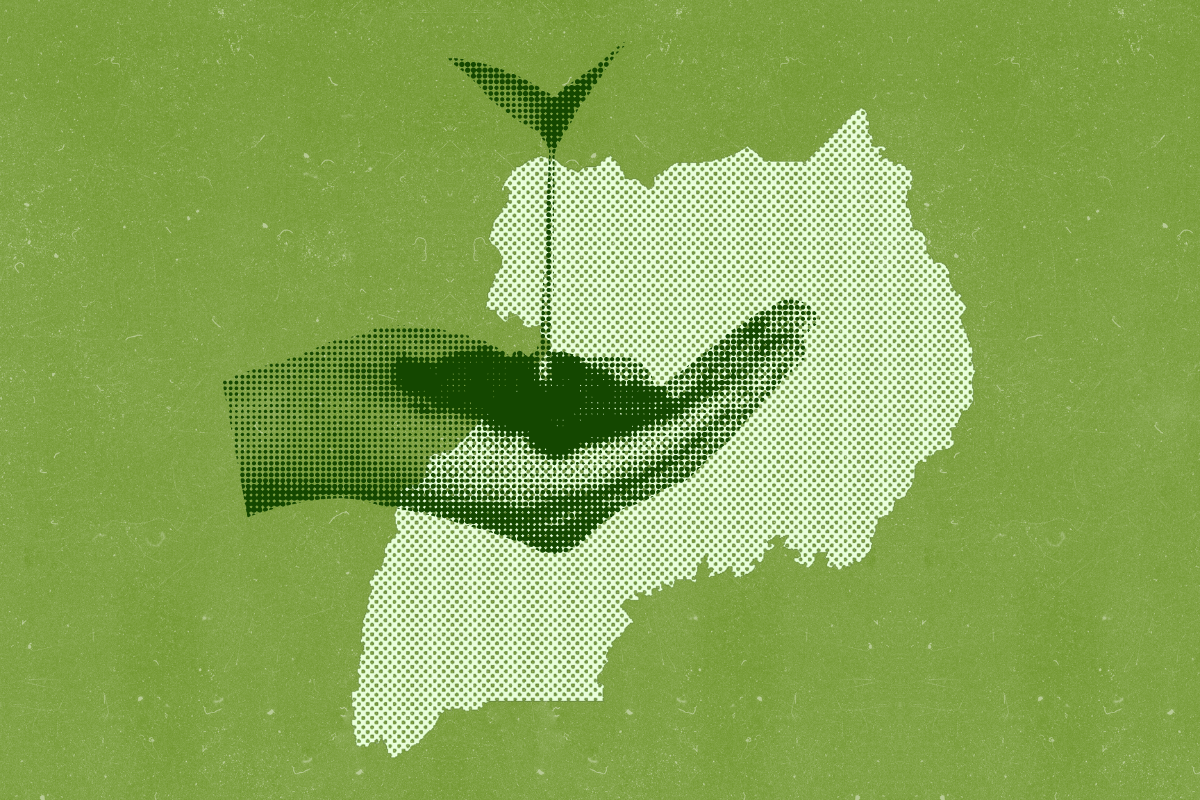Growing up in Southern California, I didn’t know a lot about trees. In fact, I didn’t know much about the outdoors in general. I lived in a city, bought my food at a supermarket and enjoyed a nature walk here and there. But I didn’t feel integrated into my environment, and I definitely couldn’t name the plants that I encountered every day.
Now I live in Uganda, and everything is different.
My family — my husband, son and I — moved here in 2021 because my Ugandan husband couldn’t return to America due to pandemic travel restrictions. And while the rural life we lead here is very different from the way we lived in the United States, we decided to stay.
Most people in our region are farmers or farm workers, some by choice and some by necessity. You’ll very rarely find a family who isn’t growing some kind of fruit or vegetable in front or along the side of their house. Here in Uganda, common knowledge includes knowledge of trees. Our children know which fruits are in season and how to climb to reach them. They know how to tap on a giant jackfruit to hear if it’s ripe and they know that oil (not soap and water) is the best way to remove the gluey sap from your hands after sawing one open.
My son, who is only 3, urges us to take one direction or the other for our walks around the village based on which fruit he hopes will be ripe on the tree. Northward? That means he wants mango. To the east? He’s got a taste for guava.
There is a trusted herbal medicine doctor down the road from us. My teenage stepdaughter knows how to pick, dry and grind the leaves for the infusion that will relieve her grandfather’s foot pain. Who needs chicken soup when homemade passion fruit juice cures whatever ails you?
I was once walking with a colleague when we saw a tiny sprout. He pointed and exclaimed, “That’s ginger!” I was bewildered. A plant that I was only familiar with by the brown, bulbous roots, he was able to identify by the youngest, wispy leaf.
Visiting a neighbor’s farm of green bell peppers during the harvest time, I got to watch the workers expertly identify and snip the mature fruits from the twirling, grapevine-like stems. I bent down to hold one of the tiny white blossoms. The spicy, wooden smell of the field fluttered through the too-gentle breeze in the hot sun. Gratitude for the earth’s provision swelled my heart.
I asked my Ugandan Jewish husband if we could plant a jackfruit tree by our house. He let me know that the sprawling root system wouldn’t allow the other plants a hospitable area to thrive. This is the kind of consideration that I never would have thought of — I just didn’t know.
These are just a few times when I realized how cut off I was in my previous city life from the plants that nourish us throughout the year. The more time I spend here in Uganda, the more grateful I am to be slowly learning the common knowledge of the trees, which makes Tu Bishvat particularly special to me these days.
For our local Jewish community in Uganda, the holiday of Tu Bishvat has an elevated importance that I never knew it could have. In our village, people live on the produce of the land, fortunes rising and falling with the soil and climate. Tu Bishvat is an intentional time to value trees, the ones the Almighty has arranged for us to find and the ones we carefully cultivate. Because everyone we know here has such a close relationship with the land, and is dependent on it — not a supermarket — to eat and survive, the holiday is intensely personal and important.
In this new year of the trees, our Tu Bishvat seder table will have jackfruit to symbolize abundance, guavas to symbolize opportunity, passion fruit which means healing and pineapple, a sign of welcoming the stranger. As Jews in equatorial Africa, we cherish our special place on this beautiful planet and join together, enjoying the marvelous food it offers.
Welcome to Tree Week! In the days surrounding Tu Bishvat 5784, we at Hey Alma are celebrating all things tree and natured-related. Check back in all week for more on the special Jewish connection to our planet.




